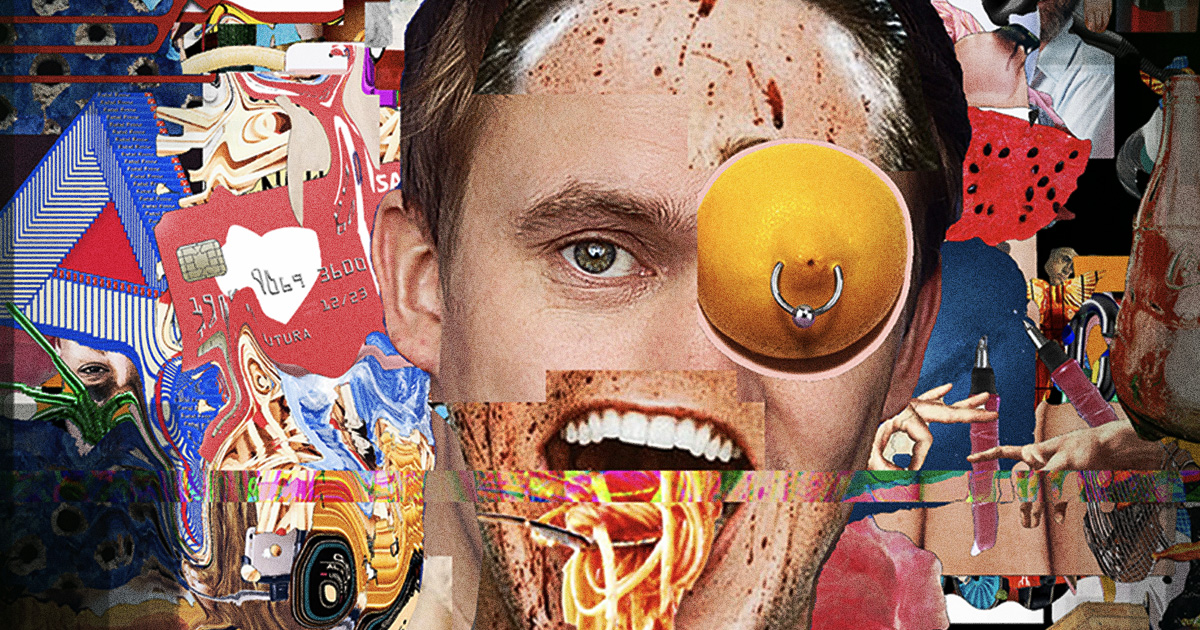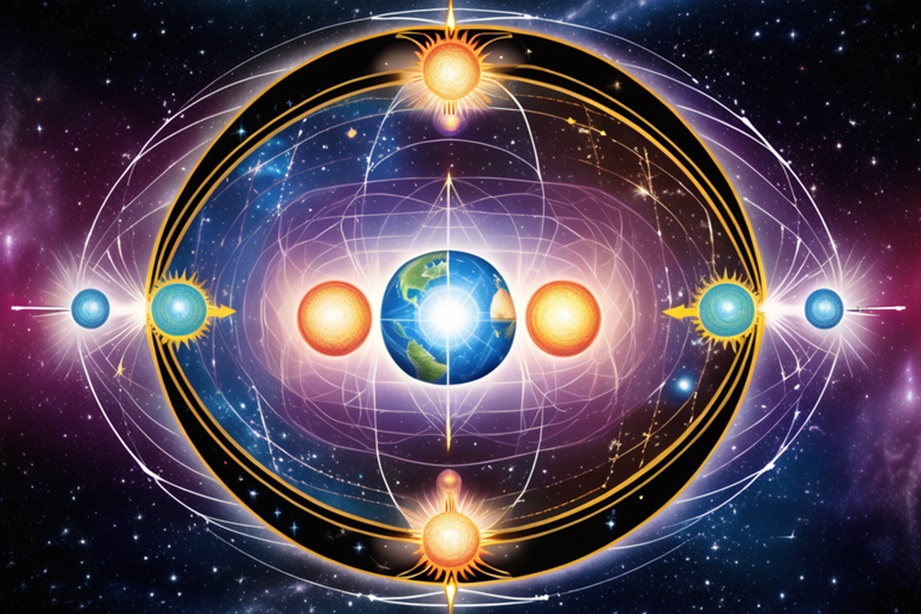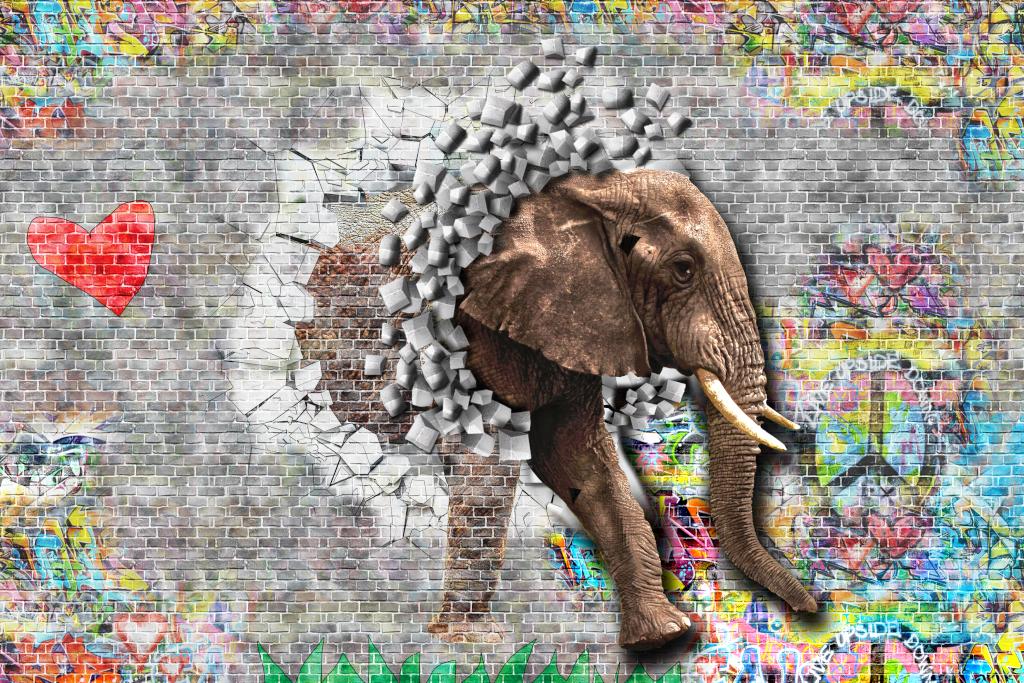The everyday self is a bias that cannot see itself as such, a bias that ‘takes itself for granted’, so to speak, and the prognosis for this peculiar situation – this situation where we identify with ‘the bias that can’t see itself to be a bias’ – is not in the least bit favourable to us, to put it mildly. It’s ‘not in the least bit favourable to us’ because we are, in this way, condemned to a life of going around in futile little circles, forever trying to make something be right that can’t ever be right, trying persistently to compensate for a deficiency that – ultimately – cannot ever be compensated for. The situation that we have just described is not a favourable one for us because everything we believe in is the result of us being biased without knowing it – we live in a false world, in other words. This false world is simply the world we are biased towards seeing; having a slanted viewpoint means that we only take heed of the evidence that supports this slanted viewpoint and so everything just keeps going around in the same old loop; any other (i.e., ‘non-agreeing’) evidence automatically gets discounted, automatically gets dismissed. If we had a bit of curiosity about our ‘inner process’ then we would spot this going on, we’d notice the way in which our attention is selective, we’d notice that we ‘ignore the evidence that doesn’t suit us’, but we’re not curious and we don’t notice. Fully fixated, as we are, upon the show of the ‘outer world’, we take ourselves for granted in everything that happens and we are in this way our own blind spot. We have zero curiosity about ourselves because the system has already defined everything for us and so curiosity simply has no place here. There is no need for it since everything in the Formal World is always exactly what it is defined as being. This curious state – the state in which we have precisely zero curiosity about the ‘bigger picture’ – is what the everyday unconscious life is all about.
We are fixated upon the outer world for two reasons that come down to just the one reason. We have fixated on the outer world because – [1] We are attracted to certain elements that we see there and we wish to consolidate our relationship with them, and [2] We are frightened (or repelled) by other elements and we wish to protect ourselves from them, in whichever way we can – we want to have no relationship with them. Both of these ‘hooks’ come down to the same thing, which is us being manipulated (or mechanically operated) by the world outside of us, the world that has been called into being as a result of us being ‘biased without knowing it’. Bias equals compulsion – if there is a bias operating then this means that we are being compelled to see the world in a particular way, it’s as simple as that. A bias is made up of YES versus NO, RIGHT versus WRONG, ATTRACTION versus AVERSION. We might see these pairs as being very different to each other but they’re not -whether it’s attraction or aversion that we’re talking about, it still comes down to ‘the situation where we are being controlled by some force from outside of ourselves’. When we come across something in the outside world that triggers our bias then we will become compelled either to trope towards it or away from it, and there’s absolutely no freedom for us in this tropism – we are being controlled by the ‘double-whammy combination’ of: [1] Our unacknowledged bias and [2] The projected aspect of this unacknowledged bias. These are two sides of the same coin since <the bias> and <the psychological projection of that biasing factor onto the world> are not two separate things. Where we to be aware of the bias within us, and aware of its projection onto the world, then we would still feel the force of the compulsion that is being manifested but we wouldn’t identify with it. We would no longer be in the situation of being totally controlled or determined by the biasing factor – we would be aware of what’s going on and that awareness makes all the difference. When there is no awareness (but only the acting out of impersonal mechanical forces) then this is ‘everyday life’.
The situation that we’ve just described would be highly unusual, however – that’s just not the normal way for things to work. The usual way for things to work is for us to be identified with the bias so that we don’t know it’s there, and since we don’t know that the bias is there we aren’t going to recognise it in its ‘projected form’ either. The situation where we are rendered ‘100 % blind to the unconscious biasing factor’ (which is to say, blind to the bias that is the ego-identity, the bias that is thought) and 100% fixated upon the attractive / repulsive images that get projected onto the screen is the state of perfect unconsciousness; it’s the perfect state of unconsciousness because we don’t have any perspective on the ego identity (since that identity is now our ‘taken-for-granted viewpoint’). We don’t experience ourselves as being forced to act in this way or that by an external compulsion (or rule), but instead we sit back and enjoy the illusion of personal volition, the illusion of free will. Or rather – as we should say – we spend half of our time enjoying the illusion and the other half suffering from it, being afflicted by it. We’re taking a ride on the Fairground of the Mind and the ride is made up of both ‘UP’ and ‘DOWN’ (which is to say, ‘euphoria’ and ‘dysphoria’) in equal proportions. There’s no net benefit to all of this carry on (i.e., we disembark from the ride in exactly the same spot that we started it) but we’re obliged to go along with it all the same. It’s a ‘compulsory ride’ not a ‘free’ one…
To be unconscious is to be ‘a prisoner of a bias without knowing it’, therefore. The invisible prejudice acts itself out through us, and – far from being an unusual state of affairs – it’s the default one, it’s ‘where we always are’. Where the machinery of unconsciousness is running properly, running without any (apparent) problems, then it remains completely invisible to us (just like an internal organ that is functioning ‘as it is supposed to’). To be psychologically unconscious is to live entirely within the domain of our own projections, it is to be wholly immersed in the show that is being put on for us. As we started out by saying, to be totally fixated on the ‘extrinsic reality’ is to be totally controlled by it, completely determined by it and – therefore – completely ignorant of the inner world (which equals ‘intrinsic space’). We have been eaten up by this outside world it – possesses us without us knowing it, without us having a clue as to ‘what’s ‘got into’ us. Just as Jung speaks of ‘being possessed by the persona’, we can speak instead of being ‘possessed by extrinsic space’, being possessed by the Formal World, being possessed – ultimately – by the Thinking Mind.
The TM ‘creates its own version of reality’ because that’s the way thought works – thought works by ‘re-presenting’ reality to us (or to itself) in its own terms. This ‘version’ of reality is the only version thought can understand (since it only understands its own terms) and so – by the same token – it becomes the only version we can understand (since we have aligned ourselves with thought in order to obtain the pragmatic benefits that come with this alliance). We now don’t know anything else apart from this world and so in this way we have become ‘the victims of our own device’. The Thinking Mind’s patented version of reality (the Formal World that we wander about in) is of course something which is more commonly known to us as a simulation. The only way thought can understand the world is by running a simulation of it ‘on its own terms’, and this last bit ought to go without saying of course, it ought to go without saying since there’s no such thing as ‘a simulation that doesn’t recreate or represent everything in its own terms’! As a result of our ‘all-out’ attempt to understand the world – which we do by constructing a model of it – we get swallowed up by the model, we get wholly subsumed within it.
When we talk about being ‘prisoners of the bias without being able to see that we are’ then this is what we’re saying therefore – we’re simply saying that we have become ‘subsumed within the simulation’. The temptation here is to say that we are ‘a prisoner of our own thoughts’, or ‘a prisoner of our own ideas’, but to say this would be to overlook the fact that they are not ‘our’ thoughts, not ‘our’ ideas, but that these ideas / thoughts belong to the system of thinking which we have subscribed to. We didn’t create the simulation – the simulation created the simulation. The Positive or Formal World which is the simulation is ruled over not by us but by ‘the logic that has been built into the situation’ – the invisible ‘game rules’ govern everything that happens and all we can do is ‘obey the rules of the game without knowing that these rules are there’. The simulation isn’t ‘ours’ at all – it rules us rather than vice versa. The Formal World to which we are adapted is answerable ‘only to itself’, so to speak; the System of Thought serves no one but itself; it serves ‘no one but itself’ for the simple reason that it isn’t capable of understanding that there could be anything else, since for the bias there is nothing but itself (which is precisely why a bias doesn’t seem like a bias when we’re adapted to it).
A bias can never see itself truly because it’s got nothing else to go on but itself. Or – as we could also say – the everyday ego (or ‘self-image’) can’t see itself truly, this perception being strictly taboo, as Alan Watts tells us. When I relate to the model of the world that thought has generated for me this automatically confirms my viewpoint as being ‘the right one’ since it is my own bias that is being reflected back at me (since – in other words – I am seeing only what I secretly want to see). Tuning in exclusively to thought’s version of reality automatically confirms my idea of myself (along with my idea of everything else!) and that feels good. It feels better than just ‘good’, it feels wonderful – bias-confirmation is like heroin for us conditioned beings, it’s what we’re all looking for. Seeking validation for ourselves is what conditioned existence is all about – if we are living our life on the basis of an invisible bias then our existence can never be about anything else other than seeking validation. Constant effort on our part is needed for us to be able to feel good about ourselves. The self-concept has to constantly prove itself, it has to prove itself over and over again and the reason it has to do this is because it is – when it comes down to it – no more than ‘a mere arbitrary bias’, a viewpoint that only seems valid (or meaningful, or special) to us because we’re biased towards seeing it like that…
Image – wallpapercave.com






